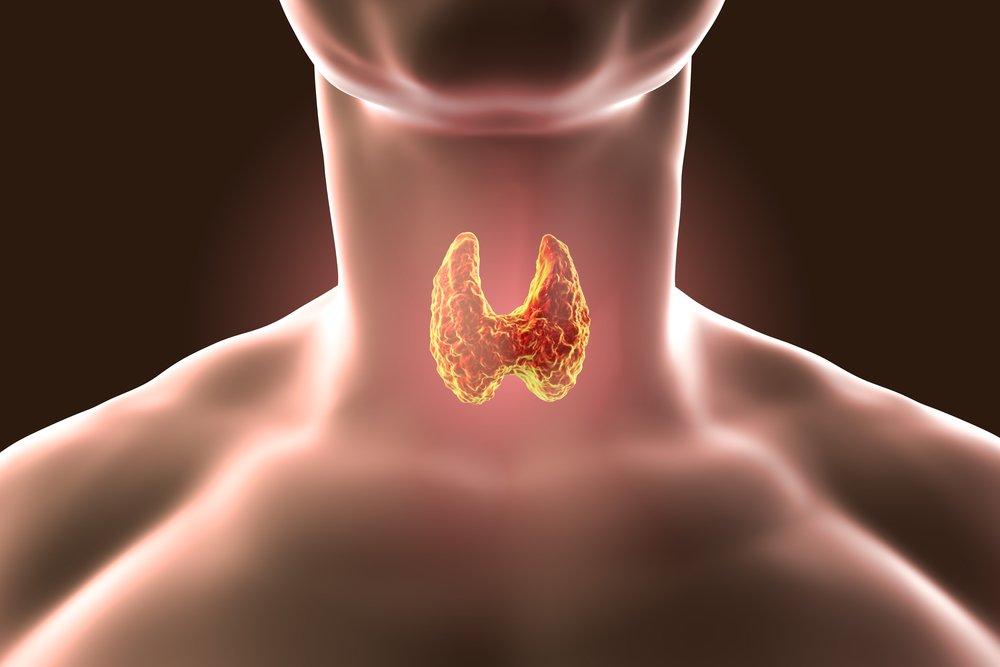Lupus Patients Face Higher Risk of Autoimmune Thyroid Disease, Korean Study Shows

Korean patients with systemic lupus erythematosus (SLE) face a greater risk of autoimmune thyroid disease, a nationwide population-based study using health insurance claims data showed.
The study, “Increased risk of thyroid diseases in patients with systemic lupus erythematosus: A nationwide population-based study in Korea,” recently appeared in the journal PLoS One.
SLE is an autoimmune disease characterized by disturbances in the immune response and autoantibody production that lead to multi-system organ damage and dysfunction. Autoimmune thyroid disease (AITD) is an organ-specific autoimmune condition associated with many non-specific autoimmune diseases such as rheumatoid arthritis, Sjögren’s syndrome and SLE.
AITD is caused by an autoimmune reaction characterized by the infiltration of immune T-cells in the thyroid. However, scientists don’t know if SLE is linked to a greater incidence of thyroid disease.
Notably, chronic inflammation due to autoimmunity and impairment of the immune system in SLE caused by immunosuppressive drugs may contribute to some degree to SLE patients’ high risk of malignancy.
Several studies show higher incidence of thyroid disease, such as Hashimoto’s thyroiditis (hypothyroidism), and anti-thyroid antibodies in SLE patients than in the general population — even in those without evident clinical thyroid disease. In contrast, studies on the incidence of Graves’ disease, or hyperthyroidism due to circulating autoantibodies, in SLE patients show significant variability.
Previous reported data are conflicting and inconsistent, probably due to several factors such as the small sample size of SLE patients available or the absence of hyperthyroidism cases in SLE patients.
This nationwide study investigated a potential association between SLE and thyroid disease using the Korean National Health Insurance (NHI) Claims Database of the Health Insurance Review Agency from 2009 to 2013. The Korean NHI program, a compulsory social insurance scheme, covers about 97 percent of South Korea’s population.
Researchers identified, evaluated and analyzed the records of 17,495 SLE patients and 52,485 age- and sex-matched control subjects without SLE. In both groups, the average age was 40 years, and women comprised 90.5 percent of the total.
The incidence of Graves’ disease was 0.94 percent and Hashimoto’s thyroiditis 2.68 percent, said authors. After adjusting for age and sex, patients with SLE were found to have a higher probability of developing Graves’ disease and Hashimoto’s thyroiditis than were control individuals.
Moreover, the prevalence of thyroid cancer in SLE patients was 1.81 percent compared to 1.30 percent for the control group. After adjusting for age and sex, SLE patients had a significantly higher risk of thyroid cancer.
Overall, the study showed that SLE patients have a higher risk of developing AITD and thyroid cancer, a link that is particularly evident in women under 40. Importantly, the authors highlighted the fact that this study is currently the largest population-based survey on the association between SLE and thyroid disease.
“We demonstrate that, in the Korean population, SLE patients have a high risk of developing AITD and thyroid cancer,” the team concluded. “In particular, the risk of thyroid disease in SLE patients appeared to be higher among patients in the younger age group compared with other age groups. Further studies are necessary to delineate the exact mechanisms of and factors affecting this association.”





